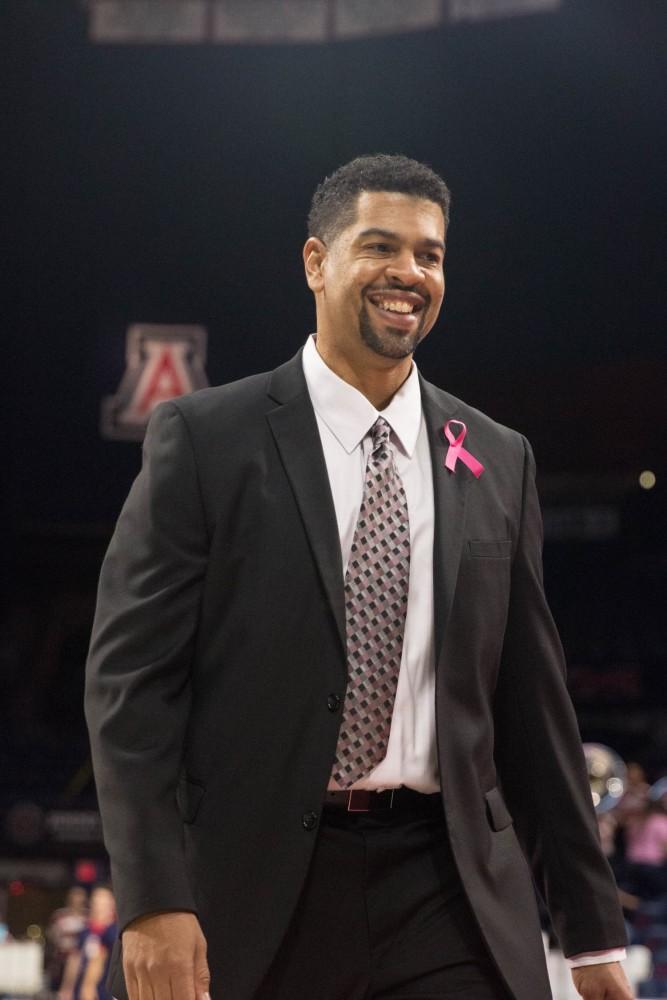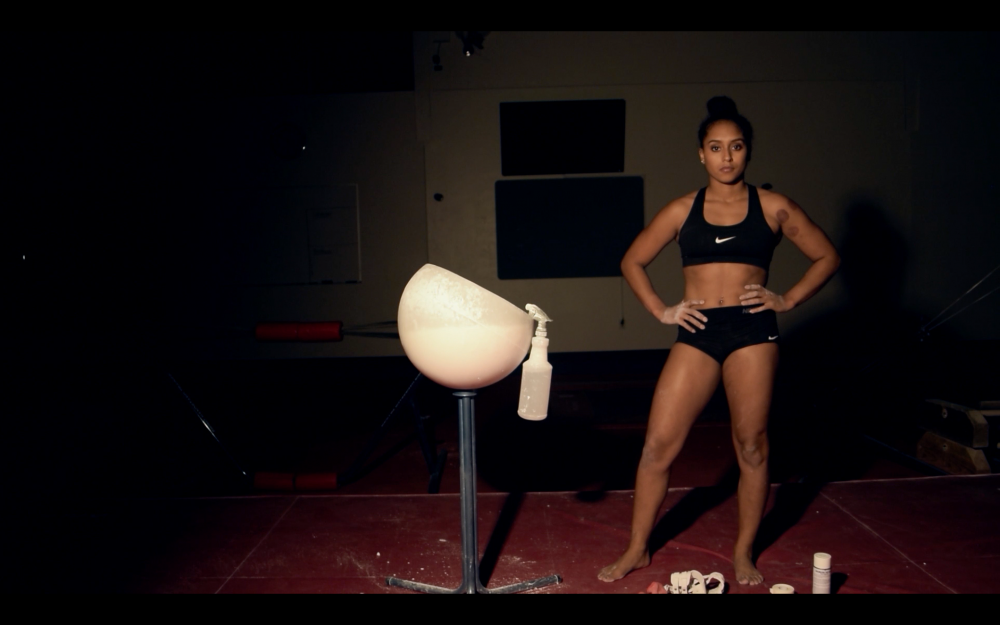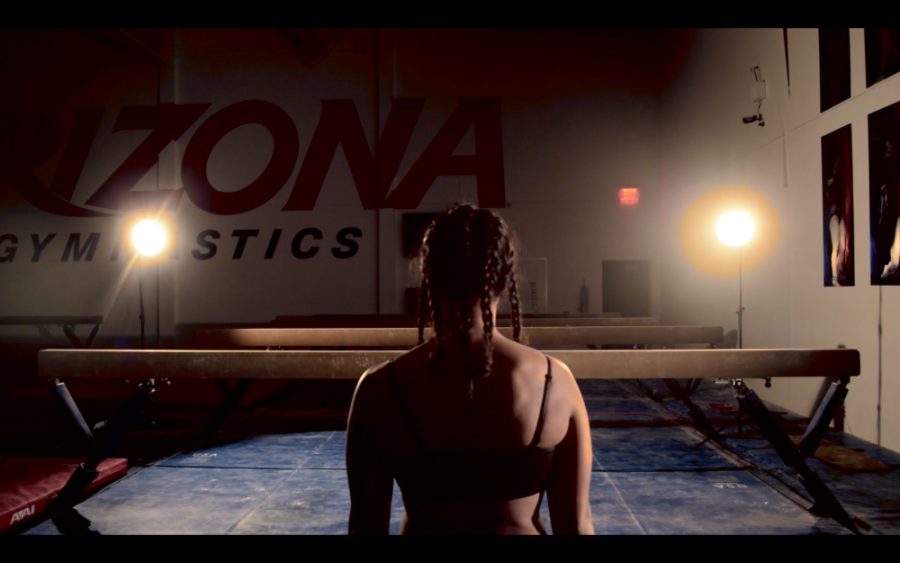“I don’t think that when Dave [Heeke] appointed me to this interim position that I was going to be the only black head coach in the Power Five — that includes the Pac-12, Big-10, the Big-12, the SCC and the ACC for women’s gymnastics,” said Arizona gymnastics interim head coach John Court.
Court has been with the UA gymnastics team for 19 seasons as an assistant coach, but during the 2018 season Court was named interim head coach and has been recognized as the only black gymnastics coach in all the Power Five conferences.
Court is one of four black head coaches at the University of Arizona, including women’s basketball’s Adia Barnes, football’s Kevin Sumlin and track and field’s Fred Harvey.
In a study measuring diversity conducted by USA Gymnastics, 74.46 percent of the U.S. gymnastics population is white and only 6.61 percent is black. The study shows that black females and males are underrepresented in the sport.
“I am myself,” Court said. “I know the color of my skin and, for me, I have had wonderful experiences in the sport of gymnastics. If you look back at the numbers, there have been fabulous black gymnasts come through the NCAA, and that has been over the course of decades.”

Court said he admires the women of color who have come through the gymnastics program at Arizona throughout the years, including Sydney Fredin, Alexis Greene, Jordan Williams and Kennady Schneider.
“They let everyone know that this university and team can be a place for everybody,” Court said. “It lets anyone else out there to encourage everyone to keep working, keep doing things right and good things will happen.”
Schneider said she sees Court as one of the most influential people in her life, and has found it special to be coached by him during her four years as a GymCat. She is able to embrace herself as a gymnast and also through her artwork.
“I was in the gym and I was talking to him [Court] about Black History Month and he told me that he is the only black women’s gymnastics head coach in the Power Five,” Schneider said. “And for me to hear that makes it so special that I am being coached under him as one of the only black athletes on this team. It means so much to see someone that I look up to like that and coaches me. I want to see myself in the person who is coaching me. It’s just so special.”
Through photography, choreography, performance and video projects, Schneider illustrates the struggles she has faced as a biracial woman.
RELATED: Odd man out

“Her art and photography is amazing for someone that is her age,” Court said. “I have been to [her] art shows myself and some of the films she has put together. She has an incredible eye and a large vision for what she wants to produce. She believes she can make a difference and she is the heart and soul of this team. Her art is amazing and everything she does with it.”
Schneider said she has become inspired by personal experiences that she faces every single day that distinguish her from any given racial sector in society.
“I use my work as a search for my own personal identity as a black and white citizen living, dating and engaging in the millennial social sphere,” Schneider said. “I often reference the history of American slavery and early hip-hop culture, and the difficulties I have inserting myself into these contexts of my heritage.”
The subject of Schneider’s work is more than herself, but is important for her to illustrate a personal subject to convey a larger concept: social justice and acceptance.
“The purpose of my work is to dissect my own identity, and it serves as a platform for social obsessions with self-classification and belonging,” Schneider said.
For both Schneider and Court, Arizona is their home where they can embrace their heritage and succeed whether it is coaching or being coached and have others one day follow in their footsteps.
Follow Syrena Tracy on Twitter









